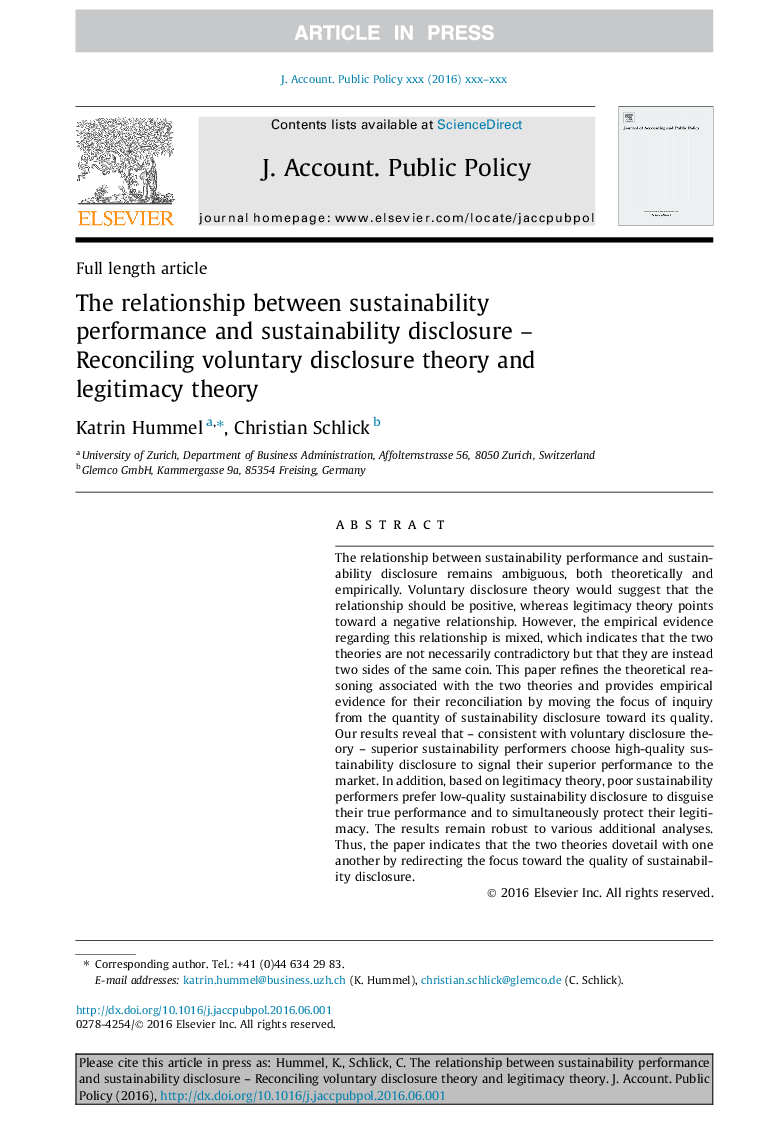| Article ID | Journal | Published Year | Pages | File Type |
|---|---|---|---|---|
| 5107692 | Journal of Accounting and Public Policy | 2016 | 22 Pages |
Abstract
The relationship between sustainability performance and sustainability disclosure remains ambiguous, both theoretically and empirically. Voluntary disclosure theory would suggest that the relationship should be positive, whereas legitimacy theory points toward a negative relationship. However, the empirical evidence regarding this relationship is mixed, which indicates that the two theories are not necessarily contradictory but that they are instead two sides of the same coin. This paper refines the theoretical reasoning associated with the two theories and provides empirical evidence for their reconciliation by moving the focus of inquiry from the quantity of sustainability disclosure toward its quality. Our results reveal that - consistent with voluntary disclosure theory - superior sustainability performers choose high-quality sustainability disclosure to signal their superior performance to the market. In addition, based on legitimacy theory, poor sustainability performers prefer low-quality sustainability disclosure to disguise their true performance and to simultaneously protect their legitimacy. The results remain robust to various additional analyses. Thus, the paper indicates that the two theories dovetail with one another by redirecting the focus toward the quality of sustainability disclosure.
Related Topics
Social Sciences and Humanities
Business, Management and Accounting
Accounting
Authors
Katrin Hummel, Christian Schlick,
